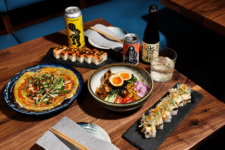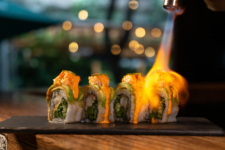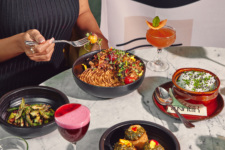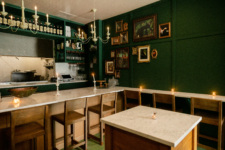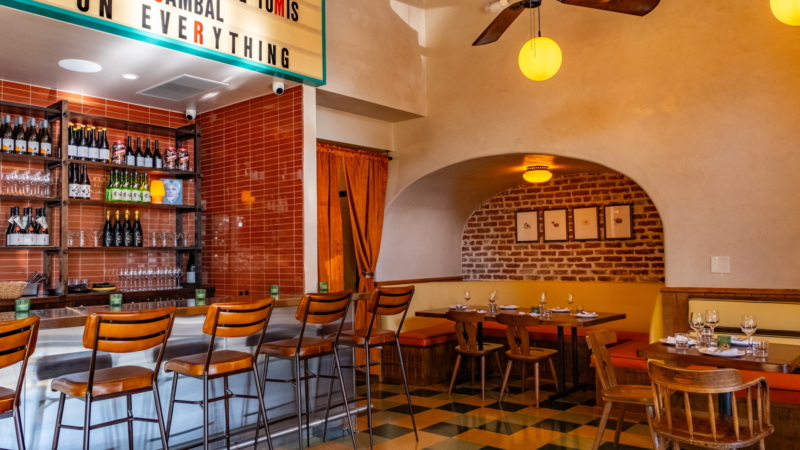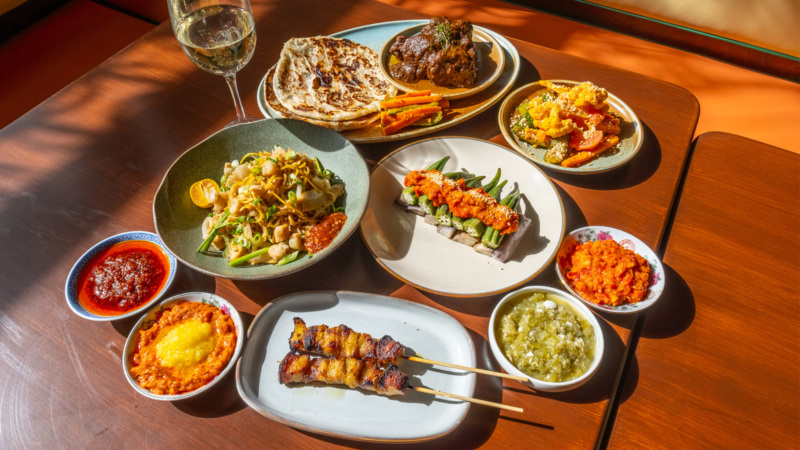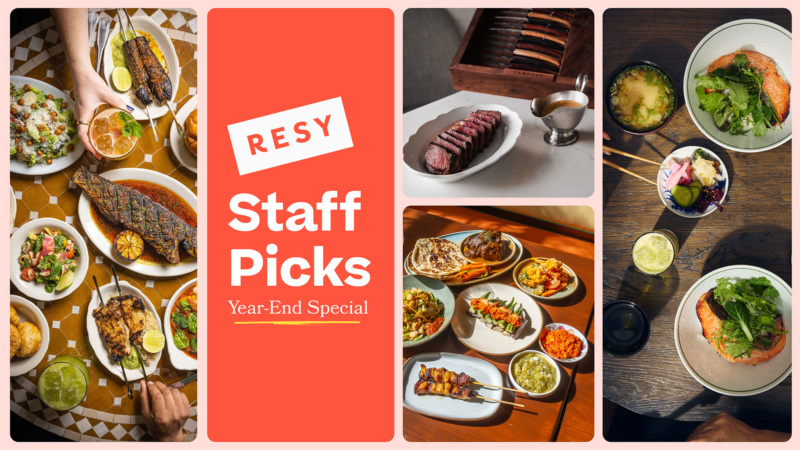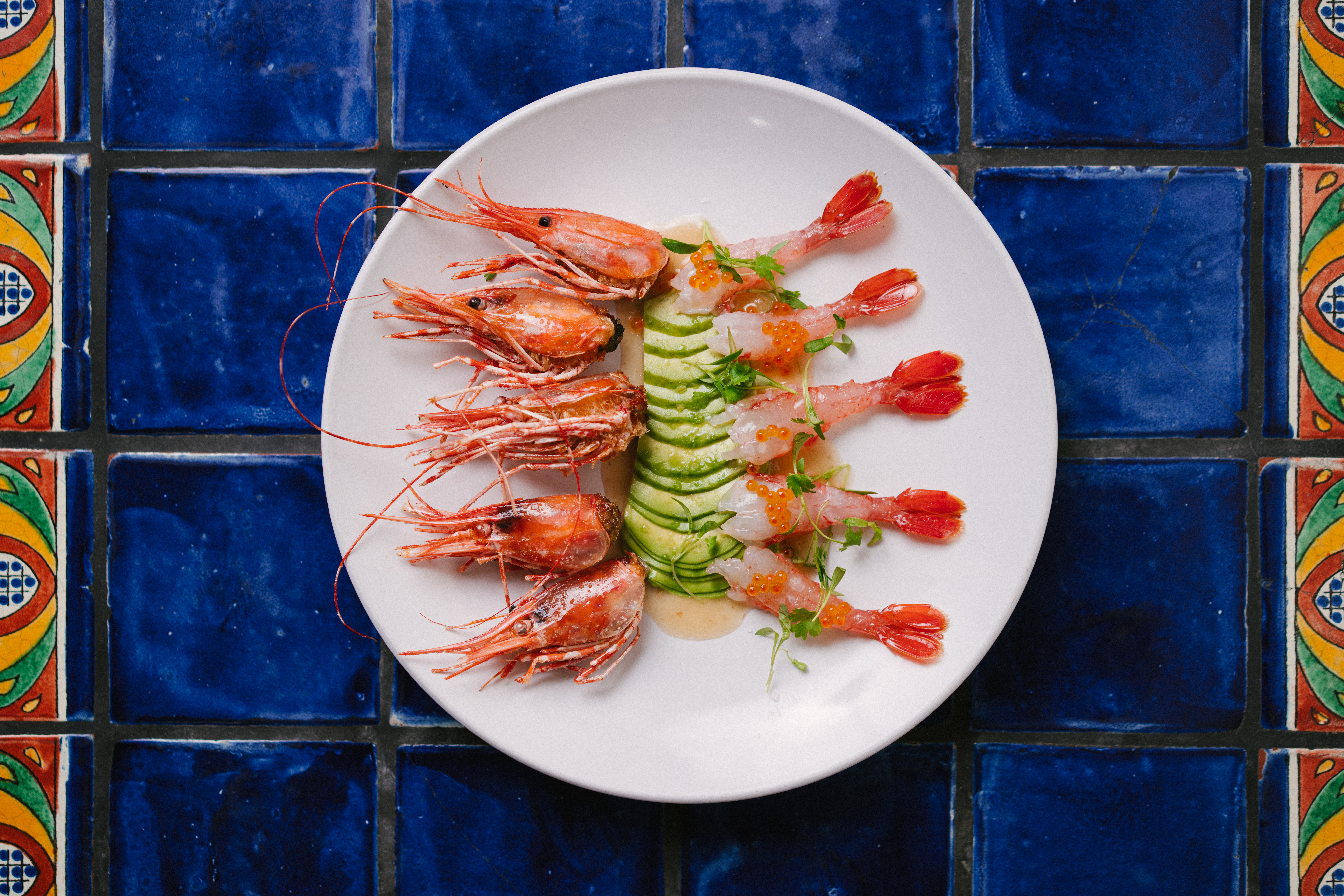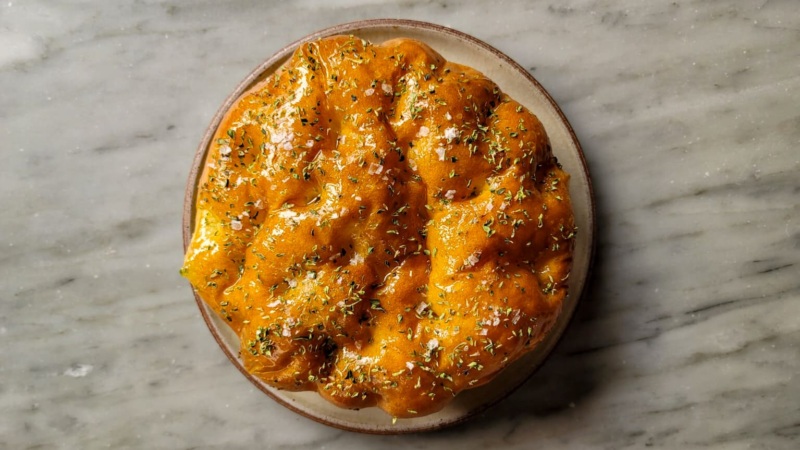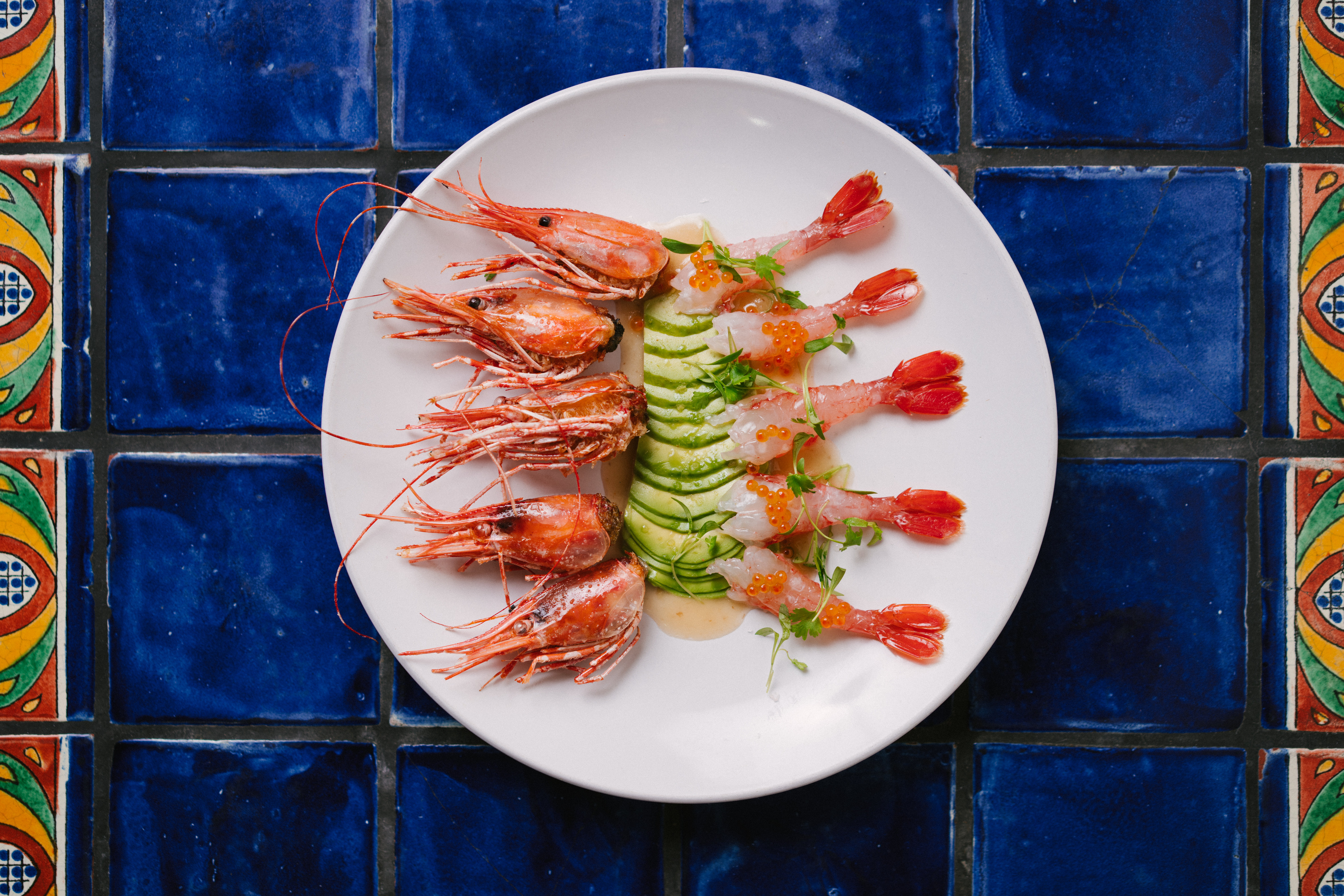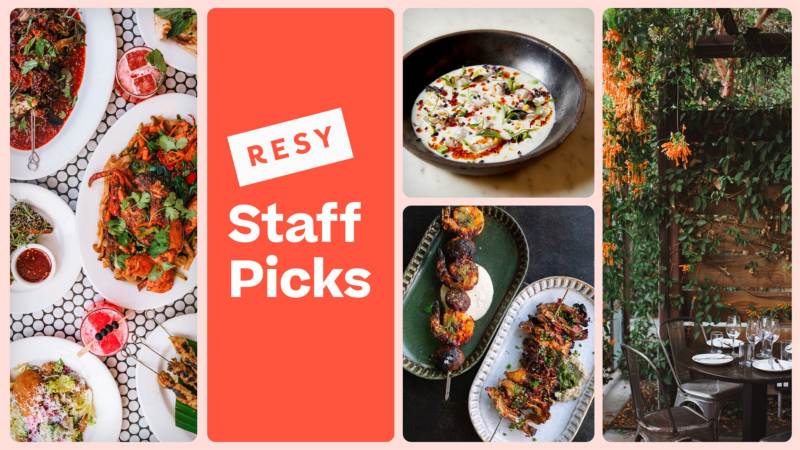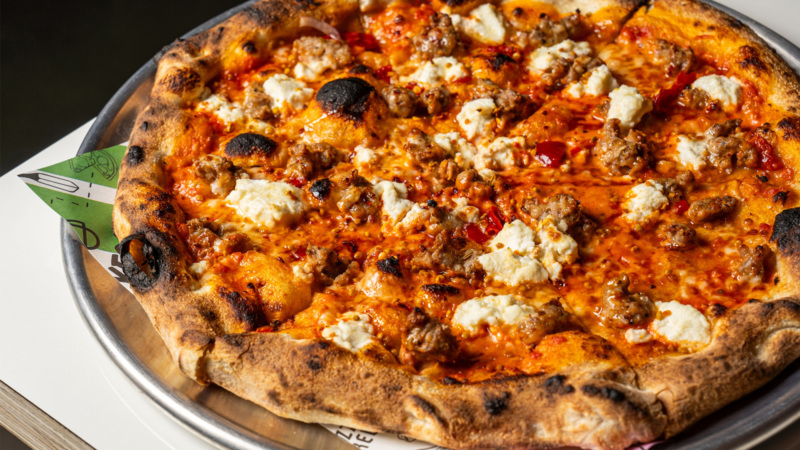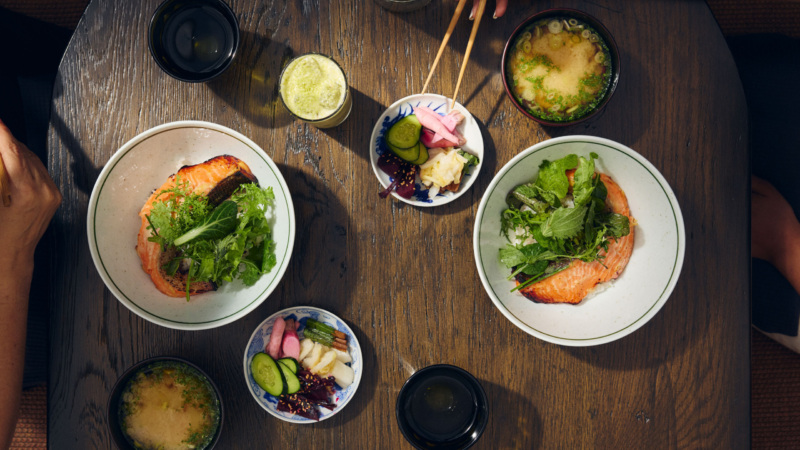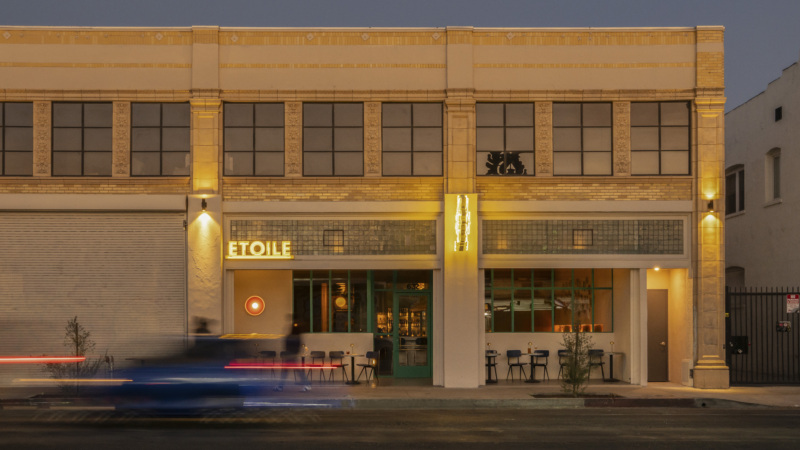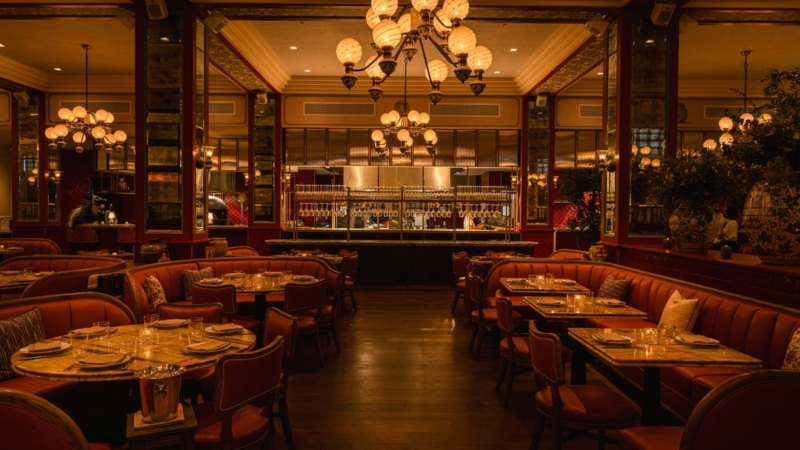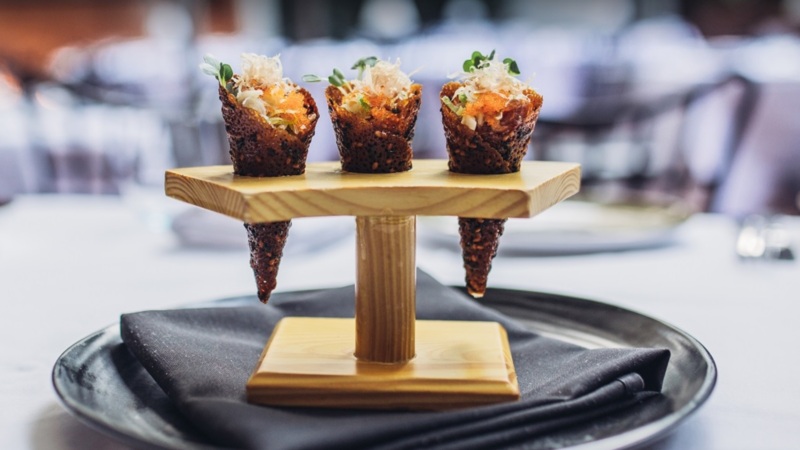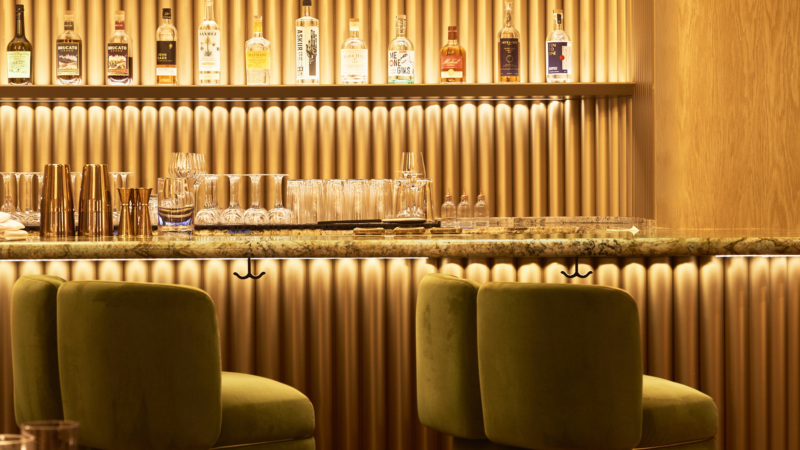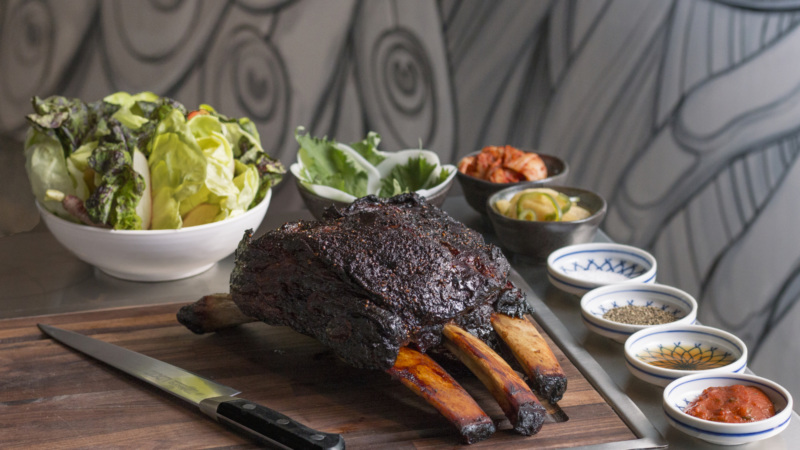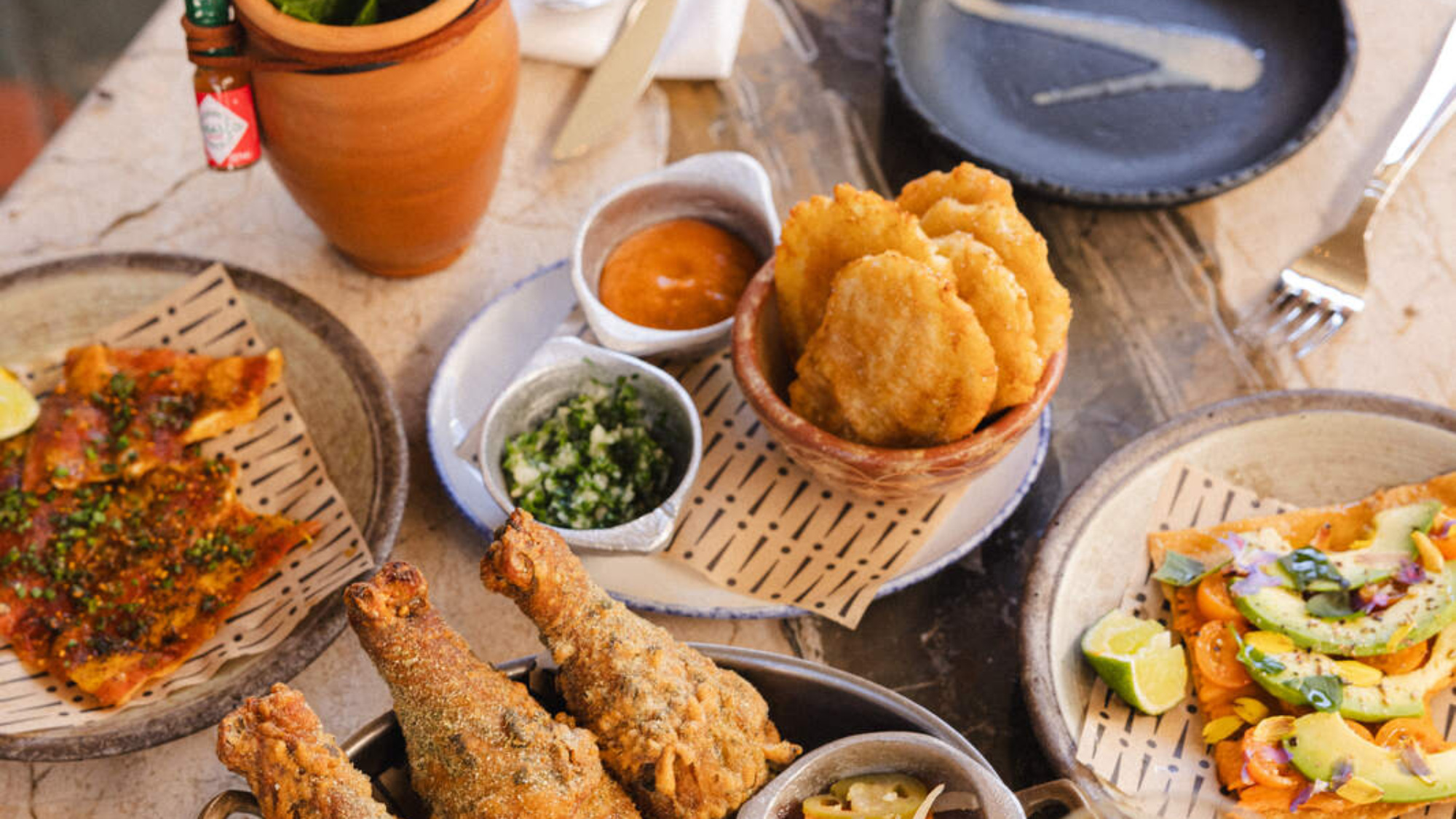
Si! Mon Brings a Taste of Panama to Venice Beach
When James Beach, the iconic Venice Beach restaurant and safe haven for the Westside queer community, closed last year after 26 years in operation, it left a prime piece of beachside real estate open for a new tenant. Enter Louie and Netty Ryan, the team behind Culver City stalwart Hatchet Hall, who took over the space and transformed it into Si! Mon, a sleek and sexy new restaurant guided by the culinary vision of Panamanian super chef José Carles.
The creative partnership between the Ryans and Carles solidified when the chef hosted a successful pop-up dinner at Hatchet Hall last summer. Fast forward to September 2023, when Si! Mon officially opened its doors, celebrating the multicultural tapestry that is Central American cuisine while honoring the best ingredients California has to offer.
“This is an opportunity for me to represent not just Panama, but Central America as a whole,” says Carles about his first stateside project.
From surf clam ceviche with culantro to Peads & Barnetts pork belly lettuce wraps, Si! Mon’s menu will take you places, with no LAX run required. Intrigued? Here’s everything you need to know before you visit.
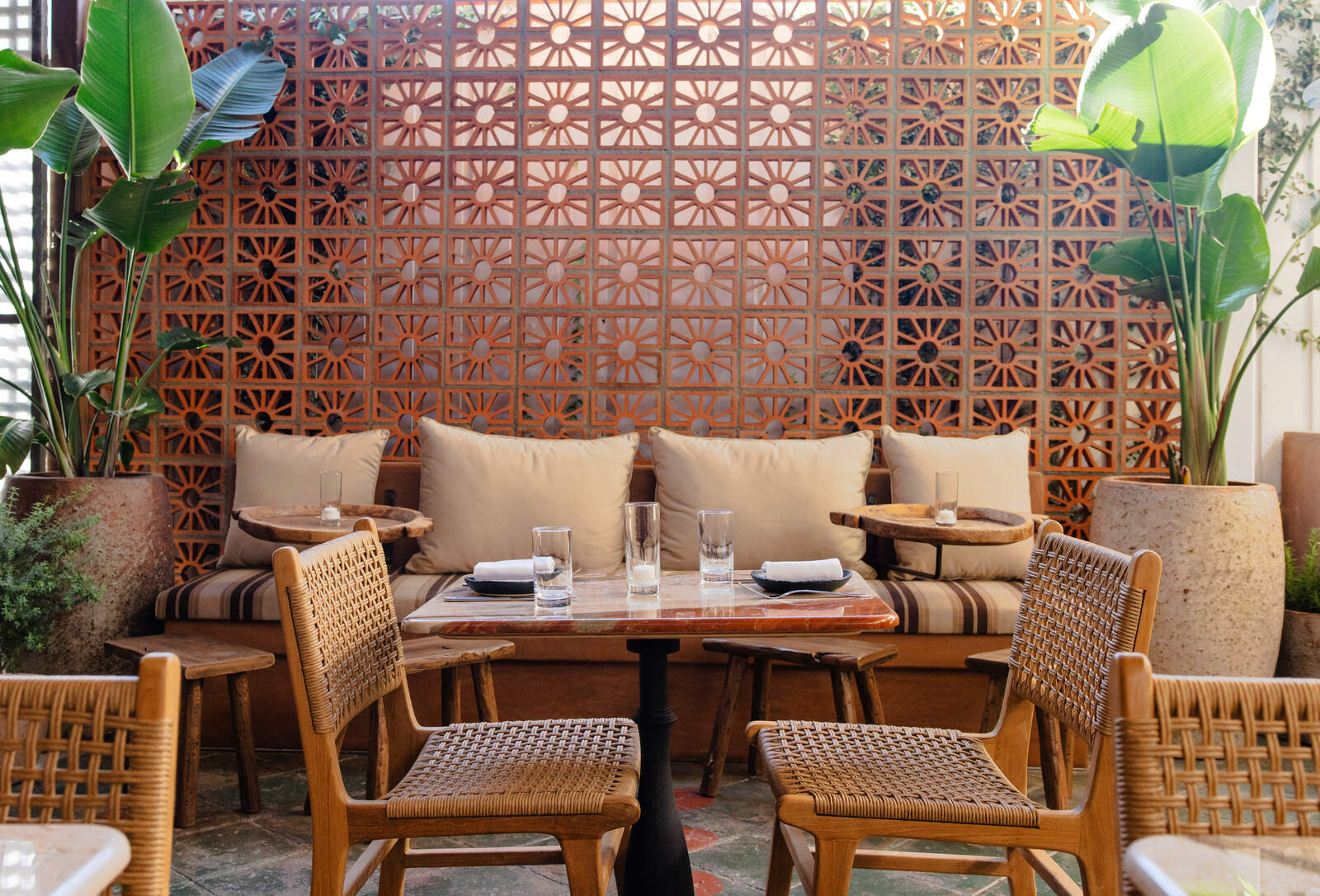
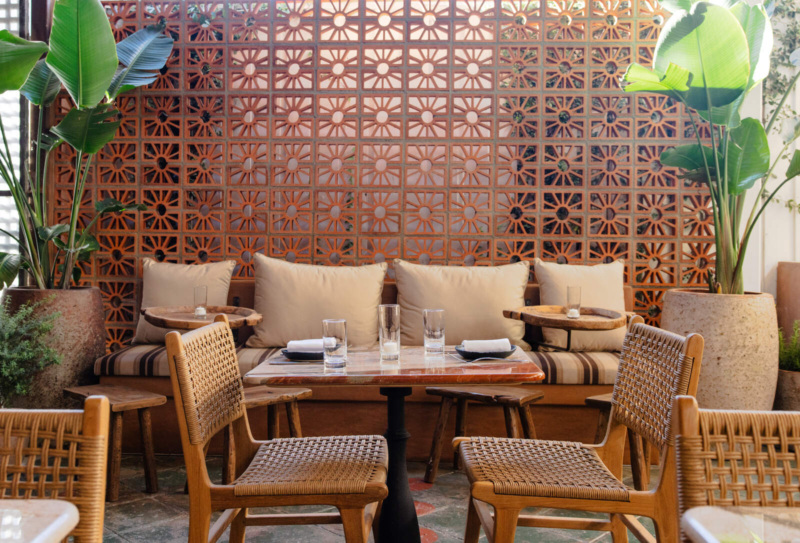
1. Chef José Carles is a big deal in Latin America.
Fonda Lo Que Hay, Carles’ Panama City restaurant, landed the 51st spot on this year’s Latin America’s 50 Best Restaurants list. He notes, “Panama right now is a food paradise; it’s insane.”
But he’ll have you know that his country’s exceptional dining scene didn’t materialize overnight. After working in kitchens in Sydney and Melbourne, Carles returned home to Panama and started doing dinners for friends that “represented [his] interpretation of where Panamanian cuisine could go.” Word spread quickly, and Carles opened his first restaurant, Donde José, in Panama City in 2014. The tasting-menu-only experience, which aimed to “tell the story of Panama through its food,” quickly became the country’s most lauded and ambitious restaurant.
This is an opportunity for me to represent not just Panama, but Central America as a whole.— José Carles
At the time, many talented Panamanian chefs were still working abroad. But like Carles, they slowly started to return home, flexing their skills, and focusing on the country’s unique ingredients and culinary culture — which draws influences from China, Spain, France, Vietnam, and Africa. When Donde José was forced to close during the pandemic, local culinary icon Cuquita Arias de Calvo proclaimed, “There’s a before and after Donde José in the history of Panamanian food.”
Carlos followed his wife, a cinematographer, to Los Angeles, and soon the urge to open a new project here took root. While a broader Caribbean food scene does exist in L.A., Carles claims that he is “the first chef that’s based in Panama, and still has a successful restaurant in Panama, that’s opened something here in the U.S.”
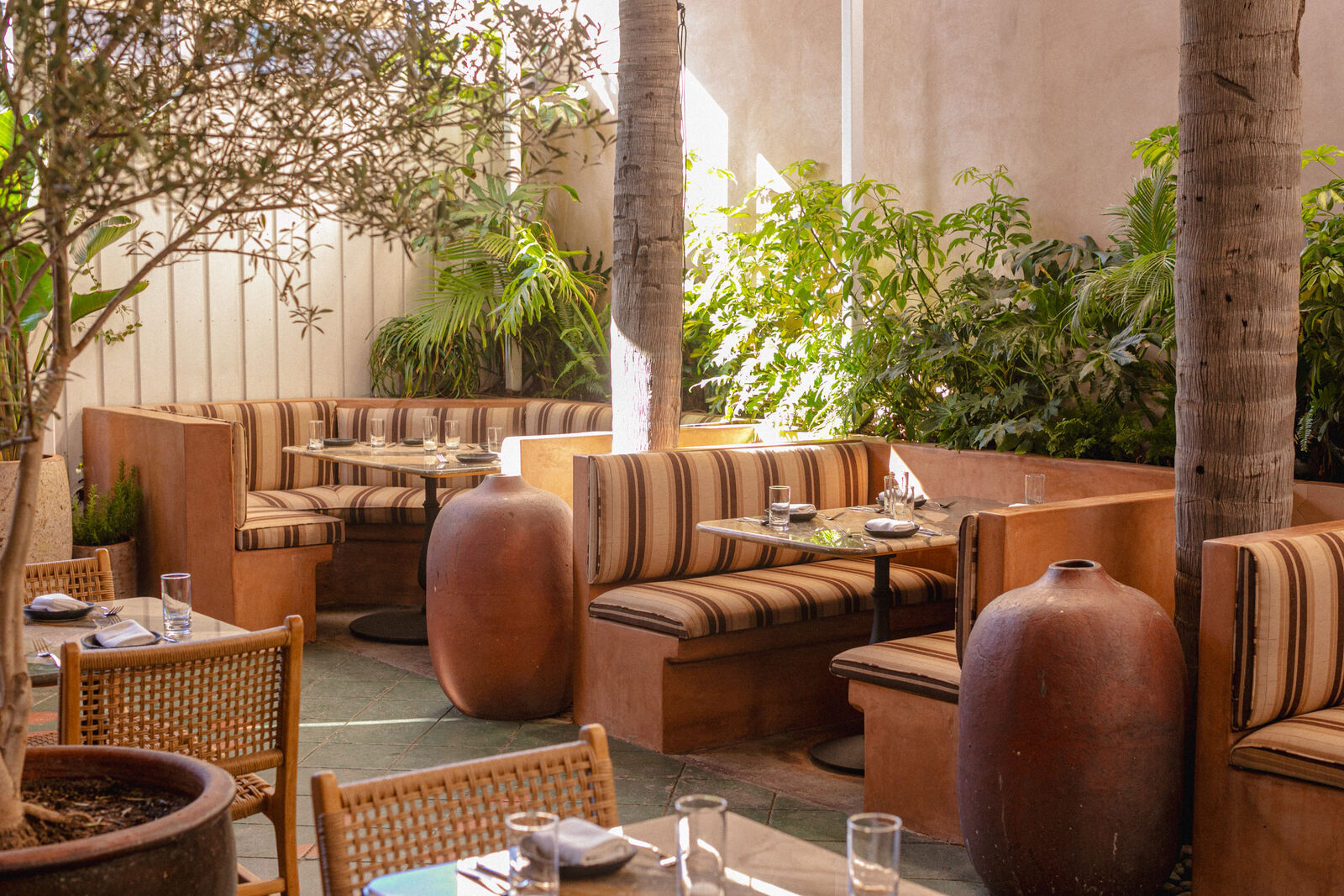
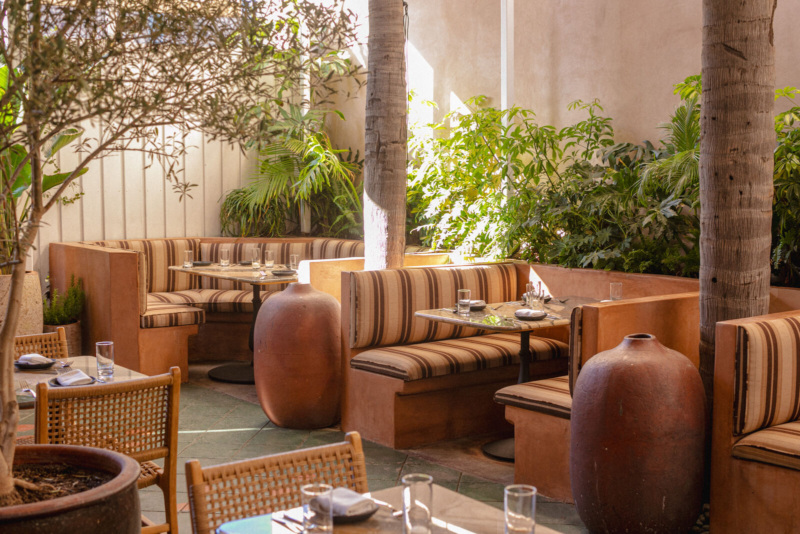
2. Recipes from Central America, redefined.
“Si! Mon’s menu is inspired by Central America, but we’re trying to do something unique to where we are,” says Carles, “which makes sense, because Panama is a melting pot, just like L.A.” Take, for example, Si! Mon’s crispy pork belly and beans. “Pork and beans is an everyday food in lots of countries, but here it’s lighter and sexier,” he says.
The creamy cranberry beans and thinly-sliced Peads & Barnetts pork belly are served with a bowl of lettuce leaves, raw onion, pickled serrano, mint, and spiced coconut vinegar, so you can make your own lettuce wraps, à la bún chả in Hanoi. Carles says there’s a heavy Vietnamese influence in Panama, and chef de cuisine Christian Truong (formerly of Manuela) has Vietnamese heritage, which may explain the resemblance between dishes.
Carles brought one of his best-selling menu items from Lo Que Hay to Venice Beach: Fried chicken drumsticks seasoned with a blend of salt, herbs, and roasted rice powder. “Having fried chicken in Panama is as common as having it in the [American] South,” the chef explains.
If meat’s not your thing, know that over half of the menu is seafood, including a housemade, ultra-thin yuca tostada topped with tuna carpaccio, cachucha chile pepper aioli (Carles ships the peppers in from Florida), and black lime powder.
“Central America is very underrepresented in the U.S., at least in the higher level of dining,” notes Carles. “We’re changing that.”
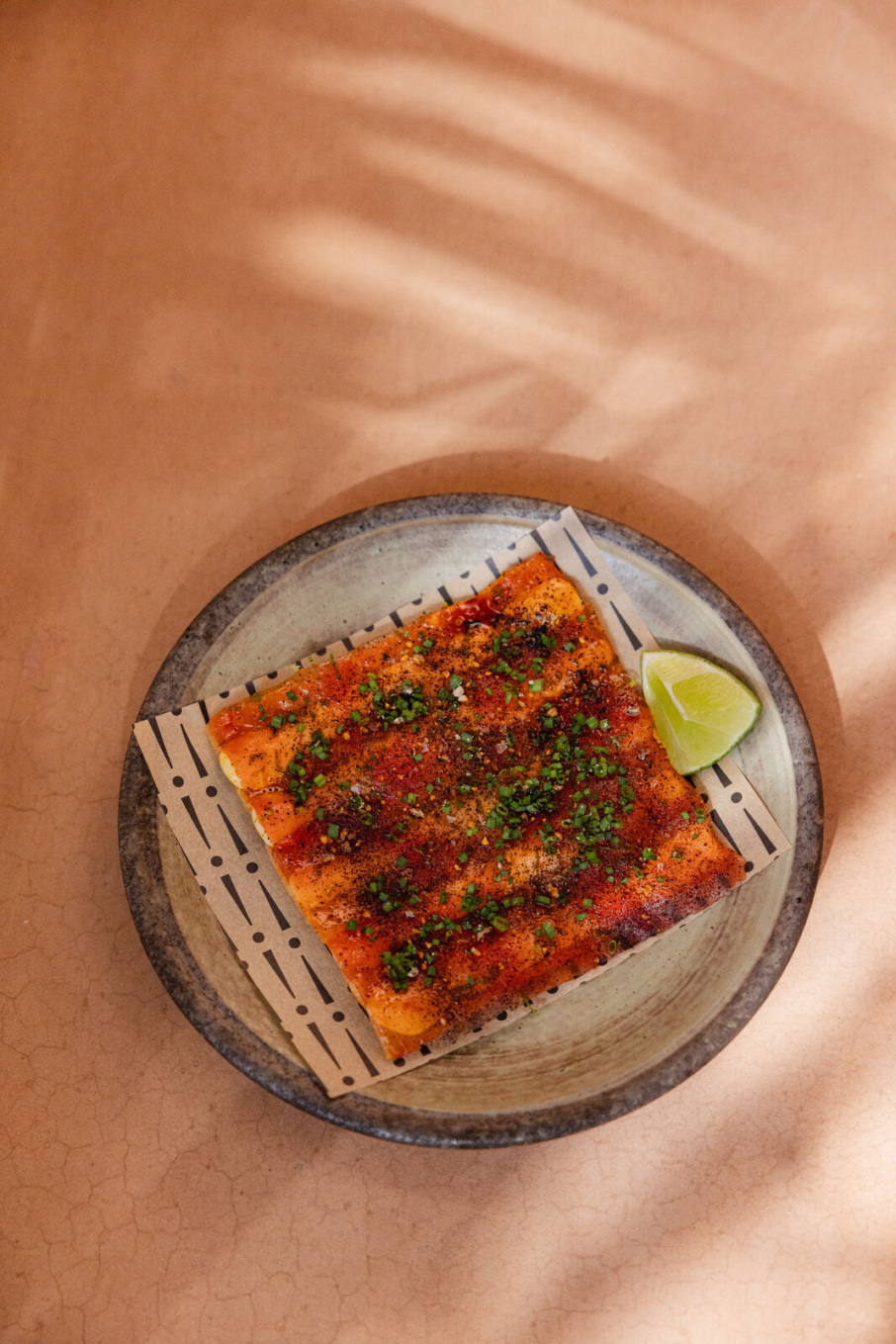
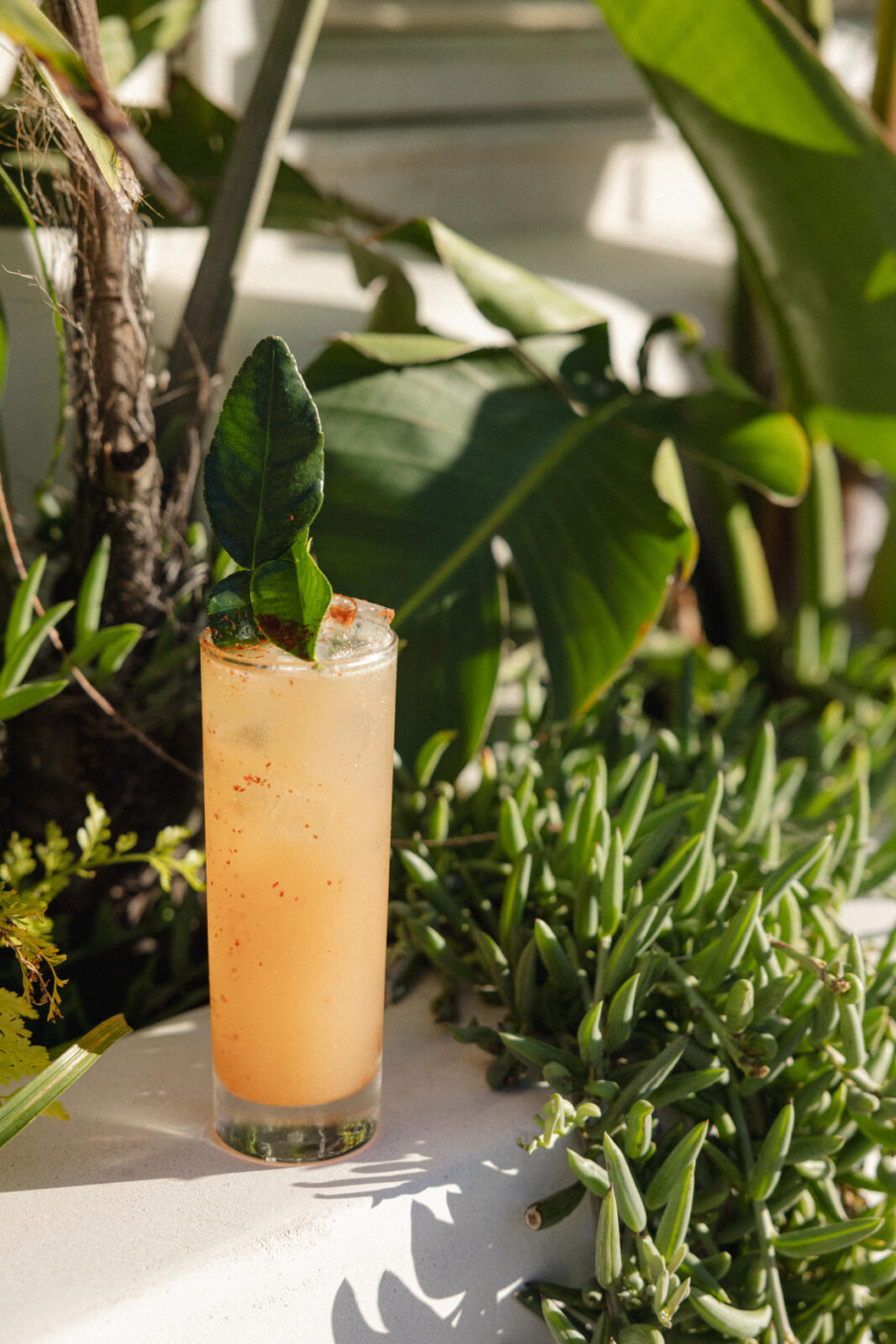
3. Don’t forget to look up.
The moment you step into Si! Mon, you’re transported to somewhere tropical and relaxed. The restaurant is divided evenly into an indoor area and a patio area, which has a retractable roof that comes off when the sun is shining. While both spaces have lush plants, plenty of bar seats, and cozy booths, only the indoor side features whimsical chandeliers, imported Italian velour, and a ceiling covered with a dreamy design inspired by mola, a pattern used by the indigenous Guna Yala people from Panama.
4. Expect banana, Parmesan, and charred corn husk on the cocktail menu.
Australia-born Jerom Morris — whose impressive résumé includes Accomplice Bar, The Georgian Hotel, Gwen, and Auburn — designed Si! Mon’s cocktail menu in close collaboration with Carles. “I gave him a homemade banana vinegar that I’m using for one of my dishes,” says Carles, “and he turned that into a spirit-free cocktail with cardamom, agave, banana, and soda.”
Aside from banana shrub, other unexpected cocktail ingredients include charred corn husk, which Morris uses to infuse whiskey for the delightfully named Soft Core cocktail, which also involves banana and mole bitters. The rum in the Funky Funk is washed with Parmesan before it’s combined with apricot, cashew, lucuma (a fruit native to the Andean Valley), and the agave spirit Raicilla, another ingredient not widely recognized in L.A., at least yet.
Pro tip: If you’d like to try some Panamanian rum straight up, Carles says to ask for Rum Abuelo.
Erin Mosbaugh is a food and travel writer from West L.A. who has worked in kitchens in New York and L.A. and co-created the James Beard Award-winning food site First We Feast. Follow her on Instagram and TikTok; follow Resy, too.
Discover More
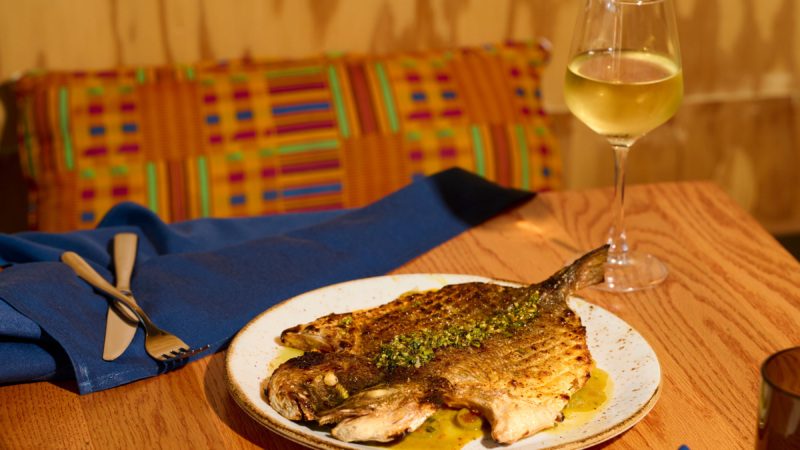
Stephen Satterfield's Corner Table



